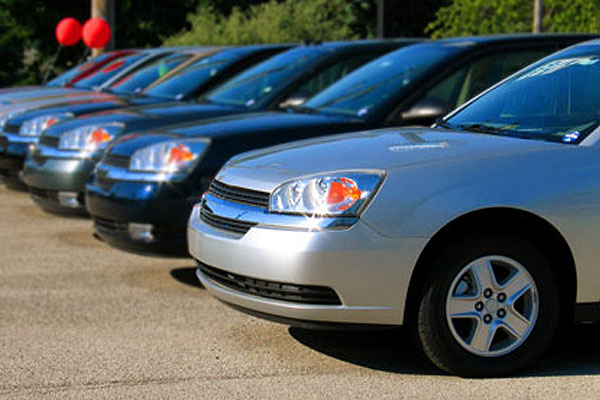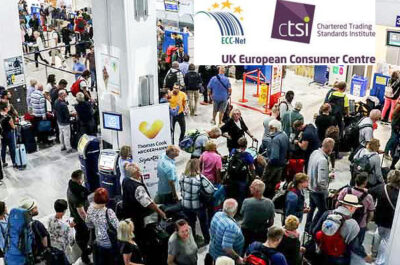Complaints and enquiries about car hire in the EU rose by almost 30% in the year to the end of June 2017 compared to the same period the previous year, according to the UK European Consumer Centre (UK ECC).
From July 2016 to June 2017 there were 629 complaints and enquiries compared to 486 the year before (July 2015 to June 2016) – that's an increase of 29.4%. The previous year (July 2014 to June 2015), there were a similar number of complaints and enquiries – 498.
Causes for complaints
The top three causes for complaint from UK consumers hiring cars in the EU are (in no particular order):
- Post-hire damage charges, especially after unsupervised drop-offs
- Disputes related to insurance – unrequested, overpriced or excess waiver
- Fuel policies – return the car empty, but pay for a full tank (regardless of how much is used)
The most frequently complained about countries (by UK consumers about EU traders) for car hire complaints include Spain, Italy, Iceland and Malta.
A typical example of a car rental complaint would result from when the consumer has to return the rental car at the end of their holiday. Weeks, maybe months, pass and eventually the consumer receives a bill from the car rental firm, charging the consumer for damage done to the car. The consumer, not surprisingly, is totally unaware of this damage and this bill is a total shock – as the consumer left the car in perfect condition. Sometimes the car rental firm will provide photos of the damage (in some cases this photo will have been taken a couple of days after the consumer returned the car).
Andy Allen, UK European Consumer Centre (UK ECC) Director, said: “Consumers are often at their most vulnerable during tough economic times and, quite naturally, they often have their guard down and are more trusting when they are on holiday. The UK ECC would advise all consumers to follow our hints and tips to minimise problems, and also to consider carefully their insurance options when they hire the cars.
“Like any transaction, car hire has risks associated with it, but in the light of these figures showing increases in complaints about car rental, we would urge consumers to be aware of some of the problems they could face and to take steps to make the whole process go as smoothly as possible.
“Our general advice to consumers hiring cars abroad is, where possible, to return the car to someone in the office, get them to check the car and sign it off as in good condition. If you have to leave the car, take some photos – showing that it was returned in good condition.
“The popularity of online shopping by UK consumers may suggest that consumers are using the internet to get better deals. They may well end up using websites that are not as legitimate as they could be, rather than official websites, and could be getting their fingers burned."
There is no specific EU legislation related to car hire, but as a consumer shopping in the European Union, UK consumers have certain rights. Their 'basic consumer principles' include: buy what you want where you want; if it doesn't work, send it back; contracts should be fair to consumers; you should not be misled, and effective redress for cross-border disputes.
Franchises:
Andy said: “Often car hire is via a franchise – franchises are basically individual companies trading under an umbrella name. When consumers hire a car, their contract paperwork will tell them who their actual contract is with.
"All a booking agent is responsible for is making the booking. It is the individual company that provides the consumer with the service that is responsible for the car itself, not the booking company. It is the same for anything you book through an intermediary, not just car hire.
"It is the people you hire the car from who are responsible for the charges made and with the actual provision of the service, so if there are any problems or arguments then the consumer needs to go back to them.
"If a consumer has a problem, then they should look at their paperwork for the company's name and address and start there with their complaint."
Car hire insurance:
Andy said: "It is a legal requirement for rental companies to provide third party liability insurance for bodily injury and property damage. This must be provided free by the car rental company – it is always included in the basic hire cost.
"In addition, there is often more comprehensive insurance offered at the rental desk. However, some customers may have alternative cover themselves. If the customer does not have alternative cover, the rental company will require the customer either to take their additional insurance or leave a security deposit. This insurance cover is usually subject to an excess, for which the hirer will be responsible.
"The BVRLA (British Vehicle Rental and Leasing Association) and ECRCS (European Car Rental Conciliation Service) Codes state that all mandatory cover (CDW and TP with an excess) must be included in the advertised “drive away” price.
"Customers may buy an additional waiver from the rental company to reduce or eliminate their excess, or can buy an insurance policy from a third party that will reimburse any excess. This is purely optional.
"It's important for consumers to remember that it is seen as their responsibility if there is any damage on the vehicle when they return it that wasn't there when they picked it up: the consumer will be liable for that."
Consumer car hire advice:
For more car hire confidence, follow the UK ECC’s car rental ‘hints and tips’:
- Do pre and post-rental vehicle inspections (with photos where possible) and ensure both parties sign these documents at the time and retain a copy.
- Shop around for the best rate (if booked online, you have no right to cancel and claim a refund). Prices may also vary according to the time of year.
- Read all paperwork before signing, including terms and conditions.
- Check what is and isn’t covered on the insurance.
- Confirm the company’s fuel tank policy. There may be penalties for returning the car with insufficient fuel.
- Check any extra charges you may be liable for: you would usually initial these at the car hire desk.
- Allow enough time to drop the car off.
- Research the country’s highway code and local road legislation.
- Request evidence of disputed charges.
When collecting the hire car, insist on walking around the car with a company representative to note any damage, bumps, scratches, fuel level, etc. Take a copy of the company’s notes for your own records and make sure it is accurate.
Remember that you are always liable for any damage present on the vehicle that was not present prior to hiring.
When returning the car, insist on another inspection with a company representative and get confirmation of lack of damage in writing to prevent further costs being incurred.
It’s also worth remembering:
- Consumers are advised when buying goods costing more than £100 and less than £30,000 to use a credit card, as section 75 of the Consumer Credit Act 1974 may place equal liability with the seller on the credit card company.
- A ‘contract’ may be breached if the car hire company does not do what its terms and conditions say.
- A car rental company must follow the code of conduct of any trade association it belongs to (check what membership applies before you sign).
- Under the EU Services Directive 2009, your place of residence/nationality should not affect the price you pay.
- Check terms and conditions before booking your hire car – that way you’ll know who has the right to charge you for the car rental.
A European Car Rental Conciliation Service (ECRS) has been established by some of the big car hire companies for customers who have booked cars direct, NOT through a rental broker or travel agent. It has been partly created by the British Vehicle Rental and Leasing Association (BVRLA).
Theodore is the Co-Founder and Managing Editor of TravelDailyNews Media Network; his responsibilities include business development and planning for TravelDailyNews long-term opportunities.
































































































































































































